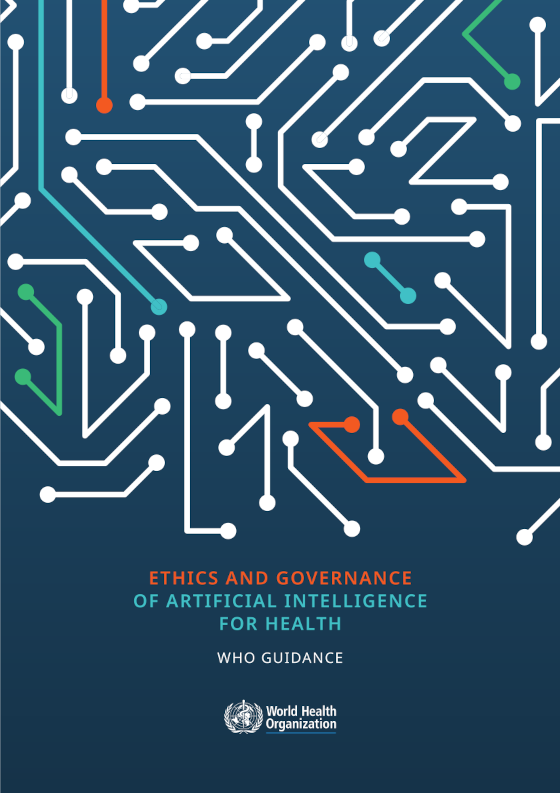 Artificial Intelligence (AI) refers to the ability of algorithms encoded in technology to learn from data so that they can perform automated tasks without every step in the process having to be programmed explicitly by a human. WHO recognizes that AI holds great promise for the practice of public health and medicine. WHO also recognizes that, to fully reap the benefits of AI, ethical challenges for health care systems, practitioners and beneficiaries of medical and public health services must be addressed. Many of the ethical concerns described in this report predate the advent of AI, although AI itself presents a number of novel concerns.
Artificial Intelligence (AI) refers to the ability of algorithms encoded in technology to learn from data so that they can perform automated tasks without every step in the process having to be programmed explicitly by a human. WHO recognizes that AI holds great promise for the practice of public health and medicine. WHO also recognizes that, to fully reap the benefits of AI, ethical challenges for health care systems, practitioners and beneficiaries of medical and public health services must be addressed. Many of the ethical concerns described in this report predate the advent of AI, although AI itself presents a number of novel concerns.
Whether AI can advance the interests of patients and communities depends on a collective effort to design and implement ethically defensible laws and policies and ethically designed AI technologies. There are also potential serious negative consequences if ethical principles and human rights obligations are not prioritized by those who fund, design, regulate or use AI technologies for health. AI’s opportunities and challenges are thus inextricably linked.
AI can augment the ability of health-care providers to improve patient care, provide accurate diagnoses, optimize treatment plans, support pandemic preparedness and response, inform the decisions of health policy-makers or allocate resources within health systems. To unlock this potential, health-care workers and health systems must have detailed information on the contexts in which such systems can function safely and effectively, the conditions necessary to ensure reliable, appropriate use, and the mechanisms for continuous auditing and assessment of system performance. Healthcare workers and health systems must have access to education and training in order to use and maintain these systems under the conditions for their safe, effective use.
Download: Ethics and Governance of Artificial Intelligence for Health: WHO Guidance (1.924 KB).
Download from DIGITAL HEALTH NEWS: Ethics and Governance of Artificial Intelligence for Health: WHO Guidance (1.924 KB).